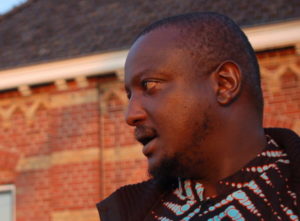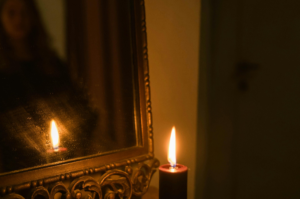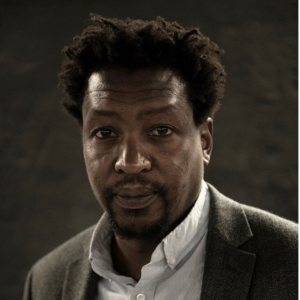There are times that even Graham believes the story he has peddled for so many years, about how he came to be gay. That he had always known; that he used to dress up in his mother; that he had been riveted by the biceps of Mohammed Ali, the anger of those black panthers on television; that he had played the kerfuffle game in public school; that the old gay friends of his mother, who had hosted him when she was in rehab, or consulting her guru in Lucknow, had made it easy to see possibilities in this world. These things are all true, but only small accessories to the main event.
But the main event, as seen by him now, is also untruthful: it was not as clear a sexual selection as he prefers to imagine, and he knows this enough not to share this story– it could well be that he was always gay, and that he would have come to it in one way or another, despite his self-protests to the contrary. But the unambiguous epiphany that the first gay fuck gave him marked not his sexuality, but his approach to life itself, it was his Woodstock, his civil rights movement. And inside himself, he remains unconvinced of his visceral homosexuality, believes that he has willfully created himself.
He was fifteen, had committed himself to liking beer, but found it gaseous and filling and bitter, and spent much time in the Gents burping and sometimes vomiting in the toilet to make space for more beer, to keep up with his friends, who seemed much more comfortable in pubs.
He had already slept with one woman, Diana, an American friend of his mother’s, a sculptor. It was peculiar – he had so persuasively constructed the sensation of sex in his fantasies, that he found the act itself unconvincing. It smelled wrong, felt wrong, was too slippery, far less efficient than a firm, lubricated hand. The hairy, soft, oddly naked layers of her pussy were confusing; and more so the conflict between his desire to thrust hard, and hers to be manipulated this way and that. There seemed to be too much to take into account—her mouth was startling—he had expected it to be tasteless, as his own mouth was to him, and her alien taste and familiar texture was confusing. But that he could make somebody moan, relinquish pride and self-possession, was repellent and exciting.
He assumed that sex was like beer—that soon it would create an unquestioning language in him, and he could lose himself in its subtleties.
The day all that changed, he was in the buffet car, on his way back from visiting his mother in rehab in Suffolk, a whole daunting pint of bitter in front of him, and a pack of cigarettes in his top pocket. Today he would smoke in public for the first time.
“Can I join you?” The voice was deep, and careless, from a roughly used throat. The man sat – placed his beer on the table, a big brown hand curled around the glass, stony, hairy knuckles standing in relief. His name was Fred, accent was Irish, and he was black, face ashy from the cold, and a recent shower. He explained himself: He worked in buildings, removing asbestos, made good money. He had worked on ships for years, till containerization cut jobs. He could speak Mandarin Chinese and Filipono. He imitated the high, brittle voice of the woman who he was presently working for, and told stories about his train ride in Communist China in 1981. His laugh rolled, smoky, phlegmy even – big, smoke-stained teeth running evenly far into his mouth. Time rolled downhill, a little bit of Graham’s mind gathering tension as the rest loosened, and the man talked, and laughed, and they drank, and the usual surround of public silence vanished, and Graham found his throat swelling to take in the beer.
Then, with the suburbs of London undulating alongside their table, Fred leaned forward, warm breath in Graham’s face, smelling of leather jacket and concrete and soap, and sweat and rollup tobacco, and said, can I tell you a secret? Graham nodded, the warm breath narrowed the world, “I like to fuck men. Fuck them silly.” Then laughed, hoarse and deep and free and Graham found himself laughing with him. Found himself shaking and warm, as that big hand, here in a public train, reached forward and brushed his chin, softly.
And, hours later, in a small house in the East End, as a large lubricated finger prized him open, Blues guitar counting sluggish strings far behind his mind; rough, soft Irish laughter, he was cut loose for the first time, head above a certain water, knew he could release his mother from being his whole belonging. He had a tribe, or a reasonable fucksimile thereof. He laughed.
*************
Post image is an adapted version of an image by Jae C. via Flickr.
About the Author:
 Binyavanga Wainaina is a Kenyan author, journalist and winner of the Caine Prize for African Writing. His debut book is a memoir titled One Day I Will Write About This Place (2011). In April 2014, Time magazine included Wainaina in its annual TIME 100 as one of the “Most Influential People in the World.” He is currently a DAAD fellow and lives in Germany.
Binyavanga Wainaina is a Kenyan author, journalist and winner of the Caine Prize for African Writing. His debut book is a memoir titled One Day I Will Write About This Place (2011). In April 2014, Time magazine included Wainaina in its annual TIME 100 as one of the “Most Influential People in the World.” He is currently a DAAD fellow and lives in Germany.










Paulinus June 11, 2017 17:17
Reading Binyavanga's works has always sparked something in me and this one was in no way different.